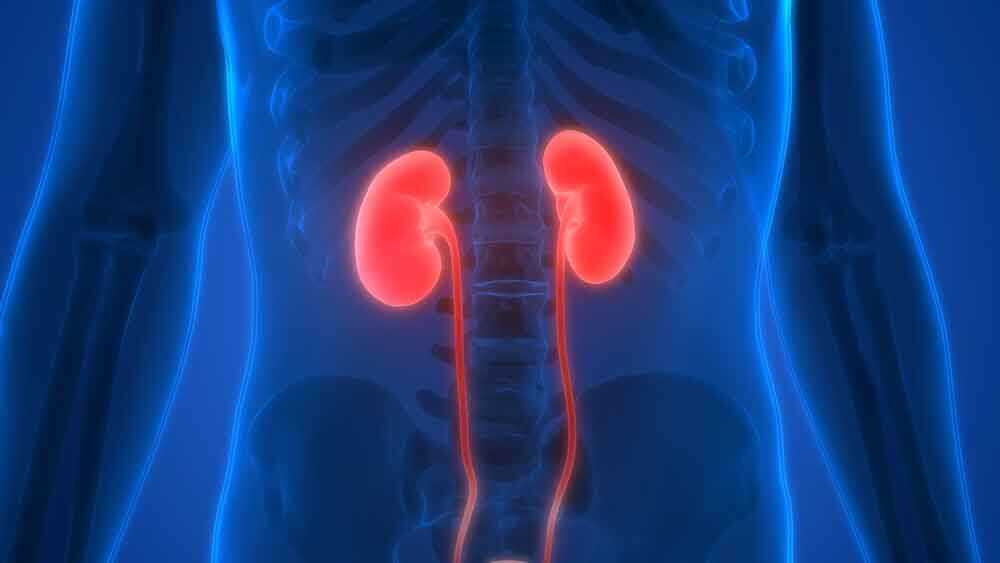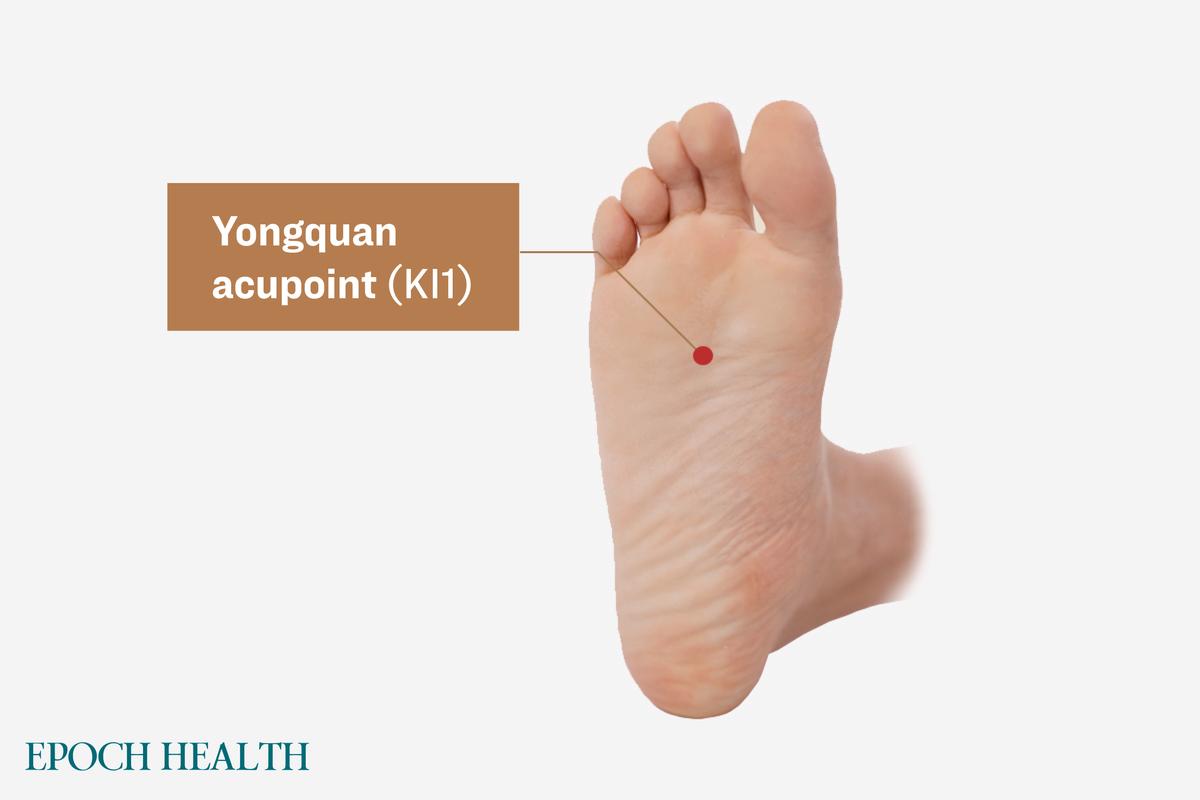
Special care to the kidneys through diet therapy, acupressure massage, and exercise—particularly from middle age onward—is crucial for good health.
Middle age often brings with it feelings of fatigue and occasional diminished mental agility, especially for those with significant work and life stresses and who frequently stay up late. Traditional Chinese medicine (TCM) attributes these symptoms to the declining function of the kidneys. To achieve longevity and good health, special attention to protecting and nourishing the kidneys from middle age onward is crucial.
4 Habits That May Be Harming Your Kidneys
1. Staying up Late
Research has found that insufficient sleep may increase the risk of proteinuria (elevation of protein in the urine) and that those with shorter sleep durations have a higher prevalence of chronic kidney disease.
2. Improper Use of Medicines and Supplements
Long-term consumption of over-the-counter medications or certain health supplements can also place a significant burden on the kidneys, potentially leading to kidney failure. It is advisable to consult a trusted physician before taking any medication or health supplements.
3. Holding Urine
Due to busy work schedules or other constraints, some tend to hold their urine, placing excessive strain on the kidneys. This can lead to deterioration in kidney function and even result in issues such as frequent urination, urinary urgency, and urinary incontinence. It is recommended to cultivate a habit of urinating regularly to avoid subjecting the kidneys to unnecessary stress.
4. Drinking Sugary Beverages
Water is the best cleanser for the kidneys. Drinking an adequate amount of water can help the kidneys eliminate waste and toxins from the body. However, excessive consumption of sugary beverages can burden the liver and kidneys as they metabolize the fructose contained in these drinks. Over time, this can lead to potential harm to the kidneys. To mitigate this risk, consider reducing sugary beverage intake by one cup per week and increasing water consumption to maintain hydration levels.
3 Natural Methods to Nourish and Support Kidney Health
1. Diet Therapy
- Black-colored foods and yams. It is recommended to regularly eat black-colored foods such as black beans and black sesame seeds, and incorporate more yams into your diet. Black beans promote hair health, nourish the kidneys, and reduce swelling. Black sesame seeds help prevent anemia, improve limb weakness, and alleviate dizziness. Yams can replenish qi and nourish the kidneys, making them particularly beneficial for men’s health.
- In TCM, qi refers to the life energy of the human body. Apart from the innate “congenital qi” endowed at birth, it also relies on supplementation from acquired nutrition and oxygen intake. Deficiency in qi can lead to fatigue and increased susceptibility to illness.
- Ciwujia tea. Ciwujia tea can replenish qi and combat fatigue, making it beneficial for individuals with demanding mental work or high levels of stress. Both ciwujia and ginseng belong to the Araliaceae family and have qi-replenishing effects, which can alleviate fatigue caused by oxygen deficiency in the body. Ciwujia tea has a subtle herbal taste with a mild sweetness, making it ideal for drinking daily. This herb is typically available in TCM herbal stores.
The Journal of Ethnopharmacology published a comprehensive review in 2021, summarizing global systematic investigations on ciwujia from 1965 to 2020. Ciwujia has long been used in traditional medicine to invigorate the liver and kidneys, replenish qi, strengthen bones and tendons, enhance appetite, and improve memory. Additionally, modern pharmacological studies have also found it to be beneficial for the cardiovascular, central nervous, and immune systems.
Preparation: Place approximately three to four grams of ciwujia in a filter bag, place it in a cup, add hot water, and let it steep for five minutes before drinking.
- Angelica, ginger, and lamb soup. Angelica, ginger, and lamb soup can replenish the blood and dispel cold, making it particularly suitable for individuals with poor complexion, easy fatigue, dizziness, and asthma. It also helps alleviate fatigue caused by blood deficiency.
Lamb is a rich source of heme iron, which is highly bioavailable, making it beneficial for individuals with iron deficiency anemia. Angelica can replenish and activate the blood, while ginger can dispel cold and warm the body, providing a warm sensation and alleviating cold extremities. For vegetarians, tofu and mushrooms can serve as substitutes for lamb.
A review, published in the journal Molecules, indicated that Angelica herb possesses “antioxidant, anti-inflammatory, anti-diabetic, antimicrobial, skin-whitening … and hepatoprotective properties,” among others. Additionally, Angelica can improve chronic kidney disease and reduce the risk of mortality in patients with this condition.
2. Yongquan Acupoint Massage
In addition to diet therapy, massaging the Yongquan acupoint also helps nourish the kidneys. This acupoint is located in the depression at the front one-third of the sole, which is also the starting point of the kidney meridian. Massaging it can alleviate soreness and promote the transportation of qi and blood to the hair follicles, thereby improving issues such as hair loss or graying.
According to TCM, meridians are the channels through which energy flows in the human body, responsible for transporting qi and blood throughout the body. When there is a deficiency of qi and blood in a certain organ, diseases or other conditions may occur. By stimulating specific acupoints along the meridians through techniques such as acupuncture and massage, it is possible to treat diseases related to the corresponding organs.
 Yongquan acupoint. (The Epoch Times)
Yongquan acupoint. (The Epoch Times)3. Quadriceps Strengthening Exercise
In TCM, the kidneys are believed to govern the bones, and the strength of kidney function is directly related to bone quality, a finding consistent with modern scientific research. Numerous studies have found that chronic kidney disease can lead to deterioration in bone quality and density.
- While seated on a chair, lift one leg straight up, hold for one to two seconds, then lower it down. Switch to the other leg and repeat the same motion. Perform this exercise for 20 repetitions with each leg, spending approximately three minutes on each set.
- While performing this exercise, make sure to engage the hip joints, as the purpose of this movement is to protect them.
In summary, it is highly advisable to break harmful habits that affect the kidneys and create new ones to support their health. Consistency is the key to effective natural kidney care methods.
Important Notice: This article was originally published at www.theepochtimes.com by Naiwen Hu where all credits are due.
Disclaimer
The watching, interacting, and participation of any kind with anything on this page does not constitute or initiate a doctor-patient relationship with Dr. Farrah™. None of the statements here have been evaluated by the Food and Drug Administration (FDA). The products of Dr. Farrah™ are not intended to diagnose, treat, cure, or prevent any disease. The information being provided should only be considered for education and entertainment purposes only. If you feel that anything you see or hear may be of value to you on this page or on any other medium of any kind associated with, showing, or quoting anything relating to Dr. Farrah™ in any way at any time, you are encouraged to and agree to consult with a licensed healthcare professional in your area to discuss it. If you feel that you’re having a healthcare emergency, seek medical attention immediately. The views expressed here are simply either the views and opinions of Dr. Farrah™ or others appearing and are protected under the first amendment.
Dr. Farrah™ is a highly experienced Licensed Medical Doctor certified in evidence-based clinical nutrition, not some enthusiast, formulator, or medium promoting the wild and unrestrained use of nutrition products for health issues without clinical experience and scientific evidence of therapeutic benefit. Dr. Farrah™ has personally and keenly studied everything she recommends, and more importantly, she’s closely observed the reactions and results in a clinical setting countless times over the course of her career involving the treatment of over 150,000 patients.
Dr. Farrah™ promotes evidence-based natural approaches to health, which means integrating her individual scientific and clinical expertise with the best available external clinical evidence from systematic research. By individual clinical expertise, I refer to the proficiency and judgment that individual clinicians acquire through clinical experience and clinical practice.
Dr. Farrah™ does not make any representation or warranties with respect to the accuracy, applicability, fitness, or completeness of any multimedia content provided. Dr. Farrah™ does not warrant the performance, effectiveness, or applicability of any sites listed, linked, or referenced to, in, or by any multimedia content.
To be clear, the multimedia content is not intended to be a substitute for professional medical advice, diagnosis, or treatment. Always seek the advice of your physician or other qualified health providers with any questions you may have regarding a medical condition. Never disregard professional medical advice or delay in seeking it because of something you have read or seen in any website, video, image, or media of any kind. Dr. Farrah™ hereby disclaims any and all liability to any party for any direct, indirect, implied, punitive, special, incidental, or other consequential damages arising directly or indirectly from any use of the content, which is provided as is, and without warranties.








